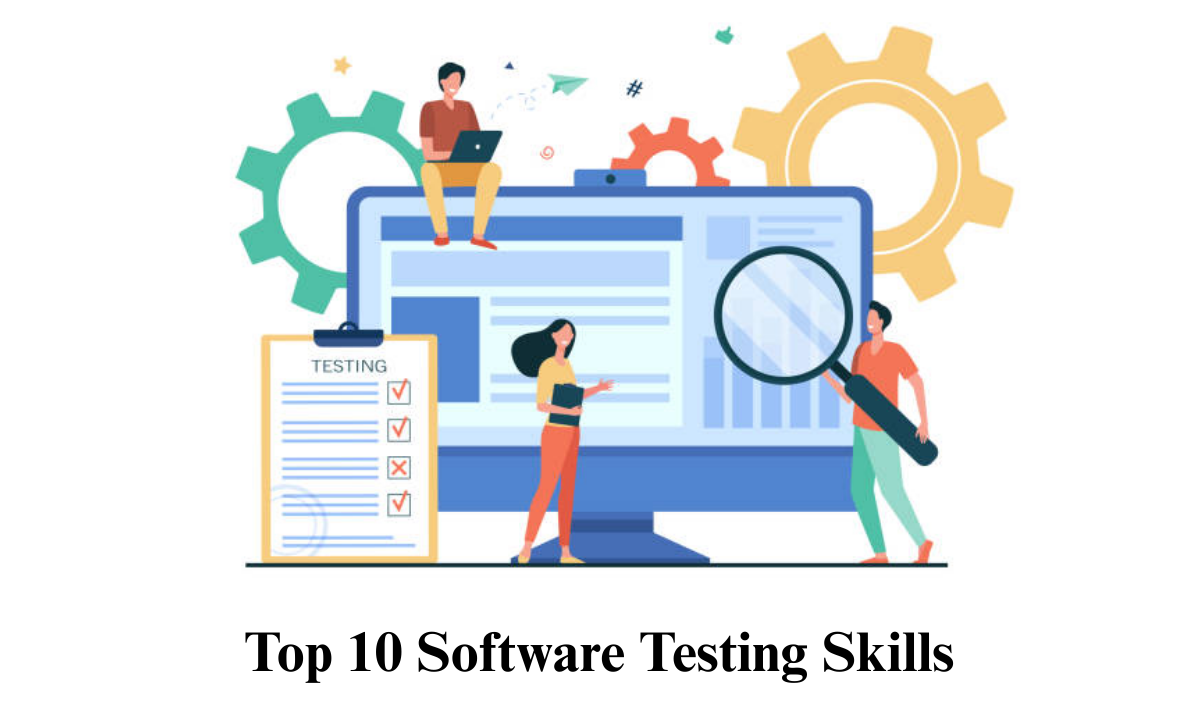Top 10 Software Testing Skills You Need to Succeed
In the fast-evolving world of software development, skills in software testing have become more crucial than ever. Whether you are fresh out of college or making a career shift, knowing what organizations demand, not just today, but tomorrow, can make the difference.
Bangalore’s tech ecosystem, with its blend of startups, large product firms, and service companies, offers massive career opportunities in software testing. Ready to see which skills will help you stand out, especially in places like Bangalore, and how a strong software testing course in Bangalore can give you the edge?
Key Takeaways
Manual testing mastery remains foundational.
Automation skills and frameworks are now expected by many employers.
Non-functional testing, domain understanding, CI/CD awareness, and communication skills are increasingly important.
Freshers who combine hands-on exposure with theoretical understanding tend to land roles faster.
Salaries in Bangalore are competitive, especially for those skilled in automation and modern frameworks.
---
1. Manual Testing Expertise
Manual testing is where most testers start. It involves writing and executing test cases, checking for features, usability, integration, and exploring edge cases. Even as automation grows, many features, especially new ones, urgent bug fixes, and UI/UX issues, are more safely validated manually.
Freshers who show a strong understanding of STLC (Software Testing Life Cycle), test case design (including negative test cases), defect reporting tools (JIRA, Bugzilla), and clear communication already have a strong foundation. Employers expect this base before moving up the ladder.
---
2. Automation Testing Proficiency

While manual testing remains essential, automation skills often differentiate candidates. Tools like Selenium, Playwright, Cypress, or Appium are widely used to automate UI, functional, or regression tests. Employers increasingly expect testers to know how to script tests, maintain test suites, deal with flaky tests, and integrate automation into regular workflows.
In Bangalore, many job listings require both manual and automation testing experience. Freshers who start learning a popular automation tool along with understanding programming constructs tend to get more callbacks.
---
3. Knowledge of Testing Frameworks & Methodologies
Frameworks like BDD (Behavior Driven Development), TDD (Test Driven Development), data-driven, keyword-driven, or hybrids of these are not just theoretical; companies use them to structure their test-automation approach. Also, tools like Robot Framework or Cucumber are commonly requested.
Knowing how to organize tests, manage test data, generate reports, set up test runners, and integrate framework work with version control systems is a skill many roles expect beyond just running scripts or ticking off test cases.
---
4. Analytical & Problem-Solving Skills
A tester’s ability to think critically, anticipate where bugs can crop up, account for edge cases, understand root causes, and make judgments on severity sets apart average performance from exceptional performance.
When you combine good analytical skills with domain knowledge (for example, finance, healthcare, e-commerce), you catch not just obvious bugs but subtle ones that might affect users in real scenarios. Also, testers who can suggest improvements (in workflows, code structure, automation stability) are often valued highly.
---
5. Understanding of SDLC & STLC
You need to see where testing fits in the bigger picture. Knowing how requirements are gathered, how design happens, the development process, deployment, and maintenance, that’s SDLC. STLC is how testing is planned, cases written, executed, defects tracked, regression done, sign-off, etc.
Testers who know both can plan better, communicate with developers, product managers, or business analysts, anticipate dependencies or delays, and avoid getting caught off-guard when features change or specs evolve.
---
6. Domain Knowledge & Communication Skills
Good testing doesn’t happen in a vacuum. If you understand the domain, say: banking, healthcare, e-commerce, edtech, you know what kind of errors matter most, what regulations or compliance issues might exist, what user behavior looks like.
Even technical testers must write clear bug reports, document test cases, give status updates, and ask clarifying questions. Strong communication reduces misunderstandings and speeds up fixes. Testers who are “bilingual”, able to speak tech and business, often move up faster.
---
7. Non-Functional Testing: Performance, Security, etc.
More than just “does it work?”, companies want to know how well. If the app scales, how fast it responds under load, is it secure against basic threats, does it perform under stress, is it accessible and usable under different network or device conditions?
Skills in tools like JMeter or Gatling, knowledge of basic security testing (OWASP principles, vulnerability scanning), and understanding performance bottlenecks are becoming more in demand. Employers, especially product firms in Bangalore, expect more than just functional correctness.
---
8. Version Control, CI/CD & DevOps Awareness
Tests don’t run in isolation. Automation needs to plug into version control (e.g., Git), be run via CI/CD pipelines (Jenkins, GitHub Actions, GitLab, etc.), and be part of a DevOps culture. If you write nice automated scripts but don’t know how to integrate them into pipelines or deployments, you might be less effective.
Knowing how tests run in staging, how to set up reporting, handle rollback, and manage environment dependencies is a big plus. Freshers who can show even small exposure to CI/CD or Git workflows often stand out.
---
9. Adaptability & Continuous Learning
The software testing landscape shifts fast, with new tools, new frameworks, trends like AI in testing, mobile/web hybrid apps, and microservices. Freshers (and even mid-level testers) who adopt a learner mindset, who try new tools, attend meetups or webinars, build small side-projects, tend to keep pace and get better opportunities.
Also, being adaptable helps: sometimes you need to test manually, sometimes automate; sometimes in UI, sometimes backend; sometimes on cloud, sometimes on mobile; change is frequent.
---
10. Soft Skills: Attention to Detail, Time Management & Teamwork
Being alert, catching small UI glitches, mismatches, and overlooked paths, is essential. Even a tiny oversight can cause a bug in production. Good written skills (bug reports, status updates), being organized (managing test artifacts, deadlines), and being able to work with developers, product managers, and UX folks (teamwork) are indispensable.
Also, managing your time, especially when working on tight deadlines or sprint cycles, matters. Testers often juggle regression cycles, bug fixes, and new feature tests, so prioritization and delivering quality within time are what count.
---
Comparative Insights: Which Skills Differentiate You
When you look at job listings, companies often don’t expect freshers to be perfect in all these 10 skills, but they often filter by a few critical ones. For example:
A fresh candidate who is strong in manual testing, has some automation exposure, understands basic frameworks, and can communicate clearly is likely to get considered over someone who only knows manual testing.
For mid-level roles, companies often expect a combination of automation, framework know-how, STLC/SDLC, and some degree of domain knowledge or non-functional testing.
As experience increases, your time management, ability to mentor, contribute to process improvement, and understanding of CI/CD/DevOps pipelines make you more promotable.
So you can think of this as a ladder: start with core manual testing, build automation/frameworks, deepen analytical/domain/non-functional skills, then add DevOps/CI/CD/communication and leadership. Each level you climb adds more expectations but also more reward.
---
Salary & Market Data: Bangalore Context
The average salary for a QA Engineer in Bangalore is around ₹8,80,000 per annum, with the typical base range being roughly ₹5,40,000 to ₹13,12,500 depending on experience.
For QA Engineers with around 2 years’ experience, data from job platforms suggests salaries of ₹8 LPA to ₹17 LPA depending on company, skill‐set, and automation vs manual orientation.
Test Analyst roles fetch approximately ₹12-₹21 LPA in Bangalore when skills like test automation, frameworks, and reporting are in place.
There are tens of thousands (“11,000+”) software testing / QA / test engineer job postings in Bangalore / greater Bengaluru area, indicating high demand.
---
Tips for Freshers & Those Aiming to Level Up
1. Start with a strong foundation: learn manual testing deeply, understand STLC/SDLC, practice writing test cases, and bug reports.
2. Pick one automation tool or framework early (Selenium, Playwright, Cypress, etc.) and try automating a small real-world project.
3. Get exposure to version control (Git), basic CI/CD pipelines. Even setting up test runs via GitHub Actions or Jenkins for your project helps.
4. Understand domain (finance, health, e-commerce): this adds value, especially when bug impact depends on domain context.
5. Learn basics of performance/security/non-functional testing (even simple tools or online labs).
6. Improve communication and reporting skills: A clear bug report often leads to faster fixes.
7. Keep learning: follow blogs, online courses (especially any software testing course in Bangalore), and communities. Build a portfolio.
---
Conclusion
Having a strong set of software testing skills is no longer optional—it’s core to succeed in QA / testing roles today and to grow into senior roles tomorrow. Whether you are just starting or aiming to get to a leadership level, combining manual testing, automation, framework know-how, domain knowledge, and good soft skills is the path ahead. In Bangalore’s growing tech landscape, investing in a well-structured software testing course in Bangalore at Apponix can accelerate your journey. With the right blend of these skills, you won’t just land a job; you will build a lasting and rewarding career.
---
Frequently Asked Questions (FAQs)
Q1: What are the most important skills required for software testing right now?
Strong manual testing skills, automation and framework knowledge, analytical thinking, STLC/SDLC understanding, communication, and exposure to non-functional testing (performance, security) are among the most sought-after.
Q2: How much should freshers expect to earn in software testing in Bangalore?
Starting salaries tend to vary but are often in the range of ₹3-5 Lakhs per annum for basic roles. With automation or advanced skills even early in your career, that number tends to climb higher. (Data varies by company and domain.)
Q3: Which tools/frameworks are most in demand?
Selenium, Cypress, Playwright, Robot Framework, Postman for API testing, JMeter or Gatling for performance testing, plus tools supporting CI/CD like Jenkins or GitHub Actions are frequently requested.
Q4: Is software testing a good long-term career choice?
Yes, especially if you keep growing your skill set. Automation, non-functional testing, domain expertise, and DevOps integration are all growing areas. Many testers move into roles like Test Architect, QA Lead, Performance Testers, or even shift toward development, product, or project management paths.
Q5: What should I look for in a software testing course in Bangalore?
Choose courses that cover both manual and automation testing, offer hands-on projects with frameworks, include non-functional testing (performance/security), teach CI/CD pipelines, provide mentorship, and ideally job placement or support.




